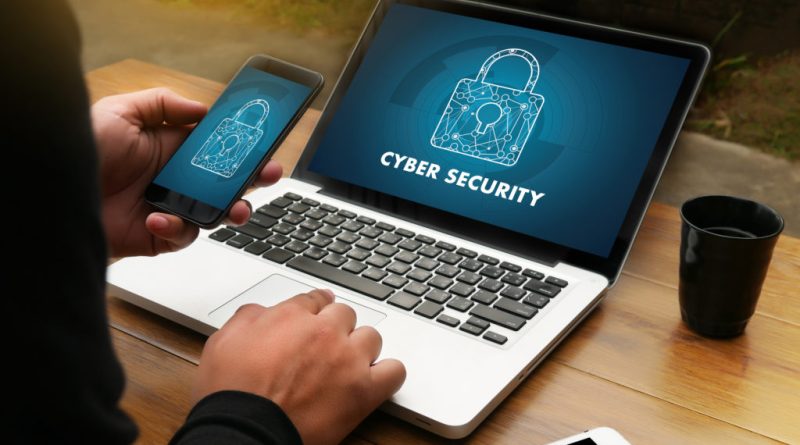Cyber Security for Small Businesses: Complete Guide to Protection
In today’s digital-first economy, small businesses are more connected than ever before. They rely on websites, digital payment systems, cloud applications, email, and social media to grow and serve customers. But with increased connectivity comes increased risk. Cybersecurity threats are no longer just a concern for large corporations small businesses are now prime targets.According to recent studies, nearly 43% of all cyberattacks target small businesses, and yet, many lack the resources and knowledge to defend themselves effectively. A single data breach can cost thousands of dollars, damage reputation, and even shut down a company permanently.This guide will provide small business owners with a complete roadmap to cybersecurity, covering the most common threats, essential protections, best practices, and affordable tools to safeguard their operations in 2025 and beyond.
Why Cybersecurity Matters for Small Businesses
-
High Risk of Attack – Hackers often target small businesses because they typically have weaker security.
-
Customer Trust – A breach can erode trust, leading to lost clients and revenue.
-
Legal & Compliance – Businesses must comply with regulations like GDPR, CCPA, and PCI-DSS if handling customer data.
-
Financial Impact – Even a small ransomware attack could cost thousands in recovery and downtime.
Cybersecurity is not optional — it’s a necessity for survival and growth.
Common Cybersecurity Threats Small Businesses Face
1. Phishing Attacks
-
Fake emails, texts, or websites trick employees into revealing passwords or payment details.
-
90% of data breaches start with phishing.
2. Ransomware
-
Malicious software locks files and demands ransom to restore access.
-
Increasingly common among small businesses with unprotected systems.
3. Malware
-
Viruses, worms, and trojans that steal data or damage systems.
-
Often spread through downloads or infected links.
4. Insider Threats
-
Employees or contractors who misuse access, intentionally or accidentally.
5. Weak Passwords
-
Simple passwords make it easy for hackers to gain access.
6. Social Engineering
-
Psychological manipulation to trick employees into giving away information.
7. Data Breaches
-
Unauthorized access to sensitive customer, financial, or business data.
8. DDoS (Distributed Denial of Service) Attacks
-
Overloading a website or system with traffic until it crashes.
Essential Cybersecurity Practices for Small Businesses
1. Strong Password Policies
-
Enforce complex passwords (12+ characters, mix of letters, numbers, and symbols).
-
Use password managers like LastPass, 1Password, or Bitwarden.
2. Multi-Factor Authentication (MFA)
-
Require two or more verification methods (password + code + biometrics).
-
Stops 99% of brute-force attacks.
3. Regular Software Updates
-
Keep operating systems, apps, and plugins up-to-date to patch vulnerabilities.
4. Secure Wi-Fi Networks
-
Use WPA3 encryption.
-
Hide SSID (network name) from public display.
-
Separate guest networks from business networks.
5. Firewalls & Antivirus Software
-
Firewalls block unauthorized access.
-
Antivirus detects and removes malware.
6. Data Backups
-
Regularly back up data to secure cloud services or offline drives.
-
Test recovery process to ensure backups work.
7. Employee Training
-
Teach staff to recognize phishing emails.
-
Implement security awareness programs.
8. Secure Payment Systems
-
Use PCI-compliant payment processors.
-
Avoid storing sensitive payment data locally.
9. Limit Access Control
-
Give employees access only to the information they need.
-
Use role-based permissions.
10. Incident Response Plan
-
Have a clear plan for responding to breaches.
-
Assign roles, document procedures, and run drills.
Affordable Cybersecurity Tools for Small Businesses
-
Antivirus & Anti-Malware – Bitdefender, Malwarebytes, Norton.
-
Password Managers – LastPass, 1Password, Bitwarden.
-
VPNs – NordVPN, ExpressVPN, CyberGhost for secure remote work.
-
Cloud Backup Solutions – Acronis, Backblaze, Google Workspace.
-
Firewalls – pfSense, Sophos, Cisco Meraki.
-
Phishing Protection – Proofpoint Essentials, Mimecast.
-
Endpoint Security – CrowdStrike Falcon, Microsoft Defender for Business.

Cybersecurity Compliance for Small Businesses
Depending on your industry, you may need to comply with:
-
GDPR (General Data Protection Regulation) – For businesses handling EU data.
-
CCPA (California Consumer Privacy Act) – For businesses in California.
-
HIPAA – For healthcare-related businesses.
-
PCI-DSS – For businesses handling credit card transactions.
Non-compliance can lead to fines and lawsuits.
Cybersecurity for Remote Work
With more businesses adopting hybrid or remote work, security risks increase.
-
Use VPNs for all remote connections.
-
Company-issued devices only for work-related tasks.
-
Secure file sharing via cloud services (Google Drive, Dropbox, OneDrive).
-
Endpoint security on laptops, tablets, and mobile devices.
The Cost of Ignoring Cybersecurity
-
Financial loss – Average small business breach costs $25,000+.
-
Downtime – Lost productivity and service interruptions.
-
Reputation damage – Customers may never return.
-
Legal issues – Non-compliance penalties and lawsuits.
Step-by-Step Cybersecurity Plan for Small Businesses
-
Assess Risks – Identify sensitive data and critical systems.
-
Create a Policy – Define rules for password use, data access, and employee behavior.
-
Deploy Security Tools – Antivirus, firewall, backups, MFA.
-
Train Employees – Run phishing simulations and awareness sessions.
-
Monitor & Audit – Regularly check for vulnerabilities.
-
Prepare for Incidents – Document response procedures.
Future Trends in Cybersecurity for Small Businesses
-
AI-powered threat detection
-
Zero-trust security models
-
More ransomware-as-a-service attacks
-
Cloud-native security tools
-
Greater regulatory requirements
Conclusion
Cybersecurity is no longer just a big-business issue — small businesses are on the front lines of cyberattacks. The good news is that protecting your business doesn’t require a million-dollar budget. By adopting strong password practices, enabling multi-factor authentication, training employees, and using affordable tools, you can significantly reduce risks.Cybersecurity is about prevention, preparation, and resilience. With the right measures in place, small businesses can thrive securely in today’s digital world.
Frequently Asked Questions (FAQ)
1. Why are small businesses targeted by cybercriminals?
Small businesses often have weaker security systems compared to large corporations, making them easier targets. Hackers know many small businesses lack dedicated IT staff, so they exploit vulnerabilities to steal data, money, or access.
2. What is the most common cyber threat for small businesses?
The most common threat is phishing attacks, where hackers trick employees into clicking malicious links or giving away sensitive information. Ransomware and malware are also increasingly common.
3. How much does a cyberattack cost a small business?
The cost varies depending on the severity, but on average, a cyberattack can cost a small business $25,000 or more in damages, downtime, recovery, and lost customers.
4. Do small businesses really need cybersecurity insurance?
Yes. Cybersecurity insurance helps cover costs related to breaches, ransomware, and data theft. It provides financial protection and peace of mind in case of an attack.
5. What are the first steps a small business should take to improve security?
-
Use strong passwords and enable multi-factor authentication (MFA)
-
Keep software updated
-
Install firewalls and antivirus protection
-
Train employees on how to recognize phishing attempts
6. How can small businesses protect customer data?
-
Use encryption for sensitive data
-
Store minimal personal data
-
Ensure secure payment gateways (PCI-compliant)
-
Regularly back up customer record
7. Is free antivirus software enough for small businesses?
Free antivirus offers basic protection, but small businesses should invest in professional security suites that include malware detection, firewall, phishing protection, and endpoint security.
8. How often should cybersecurity training be conducted?
Employee training should be ongoing, with formal sessions at least twice a year. Cyber threats evolve quickly, so regular refreshers and phishing simulations are essential.
9. Can small businesses outsource cybersecurity?
Yes. Many small businesses hire Managed Security Service Providers (MSSPs) to monitor networks, patch vulnerabilities, and respond to incidents. Outsourcing is often cheaper than hiring a full IT team.
10. What should I do if my business is hacked?
-
Disconnect affected devices from the internet.
-
Contact your IT/security team or provider immediately.
-
Restore from backups if possible.
-
Inform customers if their data was compromised.
-
Strengthen security to prevent future attacks.




